Women Who Think Too Much
Women Who
Think Too Much
How to Break Free
of Overthinking
and Reclaim Your Life
Susan Nolen-Hoeksema, Ph.D.

Case studies used in the book are either fictional, or information about individuals has been changed to protect their identity.

Holt Paperbacks
Henry Holt and Company, LLC
Publishers since 1866
175 Fifth Avenue
New York, New York 10010
www.henryholt.com
A Holt Paperback and  are registered trademarks of
are registered trademarks of
Henry Holt and Company, LLC.
Copyright 2003 by Susan Nolen-Hoeksema
All rights reserved.
Distributed in Canada by H. B. Fenn and Company Ltd.
Library of Congress Cataloging-in-Publication Data
Nolen-Hoeksema, Susan, date.
Women who think too much : how to break free of overthinking and reclaim your life / Susan Nolen-Hoeksema.
p. cm.
Includes index.
ISBN-13: 978-0-8050-7525-0
ISBN-10: 0-8050-7525-9
1. Worry. 2. Negativism. 3. Peace of mindProblems, exercises, etc. 4. WomenPsychology. I. Title.
BF575.W8 N65 2003
158.082dc21
2002027311
Henry Holt books are available for special promotions and
premiums. For details contact: Director, Special Markets.
Originally published in hardcover in 2003 by Henry Holt and Company
First Holt Paperbacks Edition 2004
Designed by Victoria Hartman
Printed in the United States of America
10 9 8
CONTENTS
Women Who Think Too Much
Part I
An Epidemic
of Overthinking
What is overthinking and where does it come from? In , I describe overthinking and our research on its negative consequences. I suggest several contributors to overthinking, particularly in women.
1
Whats Wrong with Overthinking?
O ver the last four decades, women have experienced unprecedented growth in independence and opportunities. We are freer to choose what kinds of relationships to have, whether and when to have children, what careers to pursue, and what lifestyles to leadchoices previous generations never dreamed possible. Advances in medical science have made us healthier than ever before and living longer. We have many reasons to be happy and confident.
Yet, when there is any pause in our daily activities, many of us are flooded with worries, thoughts, and emotions that swirl out of control, sucking our emotions and energy down, down, down. We are suffering from an epidemic of overthinkinggetting caught in torrents of negative thoughts and emotions that overwhelm us and interfere with our functioning and well-being. Our concerns are about fundamental issues: Who am I? What am I doing with my life? What do others think of me? Why am I not happy and content? Answers do not come easily or quickly to such questions and so we search and ponder and worry even more. As our mood gets deeper and darker, we can identify still more concerns, big and small: Is my son taking drugs? Why am I still in the same dead-end job? How am I going to keep my spouse interested in me? Why cant I control my temper with my mother? These thoughts ebb and flow with our rapidly shifting moods, but we seldom reach any conclusions.
Even minor events can send us off on hours or days of overthinking and distress. Your boss makes a sarcastic remark to you and you spend days worrying about what he meant and about your feelings of guilt and shame. A friend makes a comment about your weight, and you get mired in thoughts about how you look and how insensitive the friend is. Your spouse is too tired to have sex one evening and youre up all night wondering what this means for your marriage.
This epidemic of morbid meditation is a disease that women suffer much more than men. My studies have found repeatedly that women are more likely than men to fall into overthinking and remain stuck there. Take, for example, Veronica, a twenty-seven-year-old full-time mom with auburn hair and dancing brown eyes. Veronica adored caring for her toddler twins and being involved in community activities that she felt could benefit her twins and other children in her town. But when she wasnt teaching the twins how to swim, or at an organizational meeting for some fund-raiser for her community, or otherwise busy, Veronica would find herself slipping into the muck of negativity and concern we call overthinking:
Whats wrong with me that I never feel completely satisfied with what Im doing? I just keep agreeing to more committees and arranging more activities for my kids. But nothing ever feels quite right. Whats wrong with my life? Maybe its something about my hormones. But it seems to last all month long. I dont know, maybe Ive made the wrong choices in my life. I say I like being a stay-at-home mom, but do I really? Does Rick really appreciate what I do for our children?
As she continues to fret, Veronicas thoughts jump to her weight, then to her marriage, and then to her life before full-time motherhood:
Ill never get rid of the pregnancy weight. Im destined to be fifteen pounds too fat for the rest of my life, and it will only get worse with age. What if Rick meets some pretty young thing at work and gets sick of me? How would I ever manage alone with twins? And how would I ever get a good job again? Its not as though I had great job skills before I stopped working. I never liked that job and my boss never liked me.
Women can ruminate about anything and everythingour appearance, our families, our career, our health. We often feel that this is just part of being a womanthat its a reflection of our caring, nurturing qualities. This may be partly true, but overthinking is also toxic for women. It interferes with our ability and motivation to solve our problems. It drives some friends and family members away. And it can wreck our emotional health. Women are twice as likely as men to become severely depressed or anxious, and our tendency to overthink appears to be one of the reasons why.
We do not have to be this way, however. We can rise above this epidemic of emotional oversensitivity and hypervolatility and learn to recognize and appropriately express the emotions we experience. We can keep these emotions under reasonable control, and deal effectively with the situations that upset us. We can maintain serenity and self-efficacy among conflict, confusion, tragedy, and chaos. We can stand strong and tall against the worst storms. We can be the directors of our own emotional lives.
Escape from Overthinking
Trying to overcome overthinking is like trying to escape from quicksand. The first step to freedom is to break the grip of your thoughts so that they dont continue to pull you down further, and eventually smother you. The second step is to climb up out of the muck onto higher ground where you can see things more clearly and make good choices about what directions you should go in in the future. The third step is to avoid falling into the trap of overthinking once again. At the core of Women Who Think Too Much is a set of practical strategies for accomplishing each of these stepsbreaking the grip, moving to higher ground, and avoiding future traps.
Some people come by these strategies naturally. Take, for example, an incident in the life of Jenny, a thirty-two-year-old stockbroker who lives in New York. For the last year, Jenny has been dating Sean, a handsome botanist who works for the state environmental protection agency. Jenny and Sean have several mutual friends and enjoy cooking elaborate dinners for them, usually at Seans small apartment on the outskirts of the city. On a Friday, Sean invited some of their friends to dinner at his apartment and asked Jenny if she would come a couple of hours early to help in the preparations. She happily agreed, but the afternoon of the dinner party she found herself far behind in preparing client invoices that had to go out by 6 P.M. At about 3 P.M., Jenny called to tell Sean she would be a bit late. She then got so frantic about finishing her invoices that she lost track of time, and looked up to see it was 5:45only forty-five minutes before their guests were to arrive, and it was a half-hour drive to Seans apartment. When Jenny ran breathlessly up the steps into Seans apartment at 6:17, she immediately saw that his attitude toward her was cold as ice. When the guests left, he let her have it, saying she was obsessed with her career, self-centered, and uncaring. Jenny knew he would be mad at her for being late, but this was more grief than she expected. After Sean yelled at her for a half hour, she walked out, slamming the apartment door behind her.
Next page

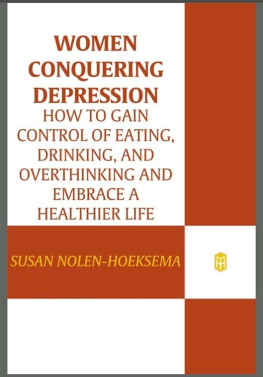
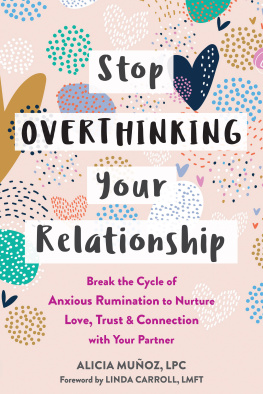
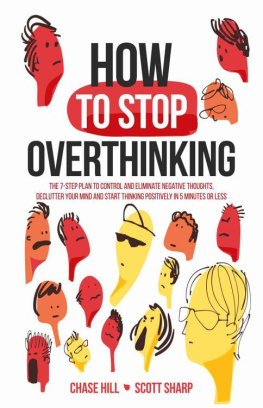

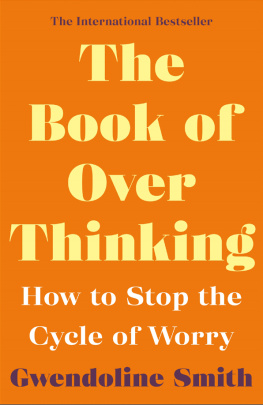
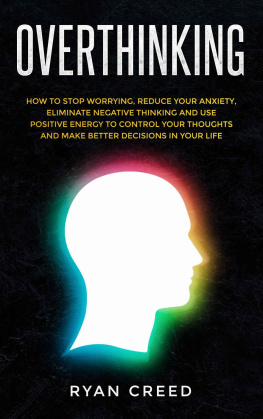
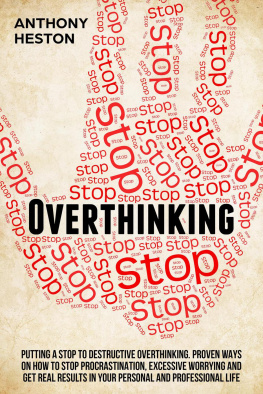



 are registered trademarks of
are registered trademarks of